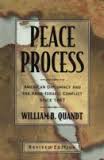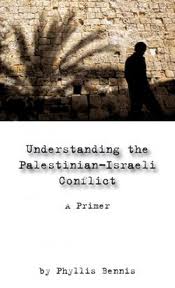“Sometime in the mid-1970s the term peace process became widely used to describe the American-led efforts to bring about a negotiated peace between Israel and its neighbors. The phrase stuck, and ever since it has been synonymous with the gradual, step-by-step approach to resolving one of the world’s most difficult conflicts. In the years since 1967 the emphasis in Washington has shifted from the spelling out of the ingredients of ‘peace’ to the ‘process’ of getting there. … Much of US constitutional theory focuses on how issues should be resolved – the process – rather than on substance – what should be done. … The United States has provided both a sense of direction and a mechanism. That, at its best, is what the peace process has been about. At worst, it has been little more than a slogan used to mask the marking of time.” (Source)
In this next video, Danny Ayalon discusses the “peace process” and argues that the absence of a successful peace process is due to decades of Palestinian and Arab recalcitrance. The main reason for the conflict is not Israel’s presence in the West Bank, but successive Palestinian leaders’ resistance to Jewish sovereignty.






_17422494921.png )

